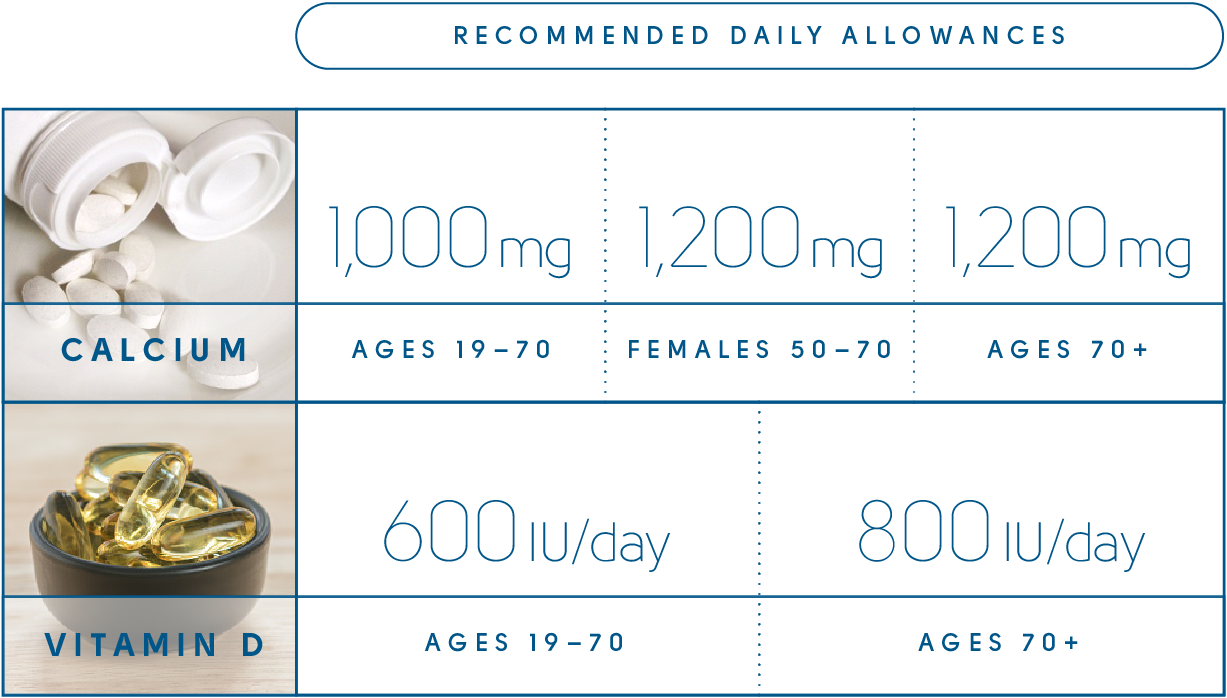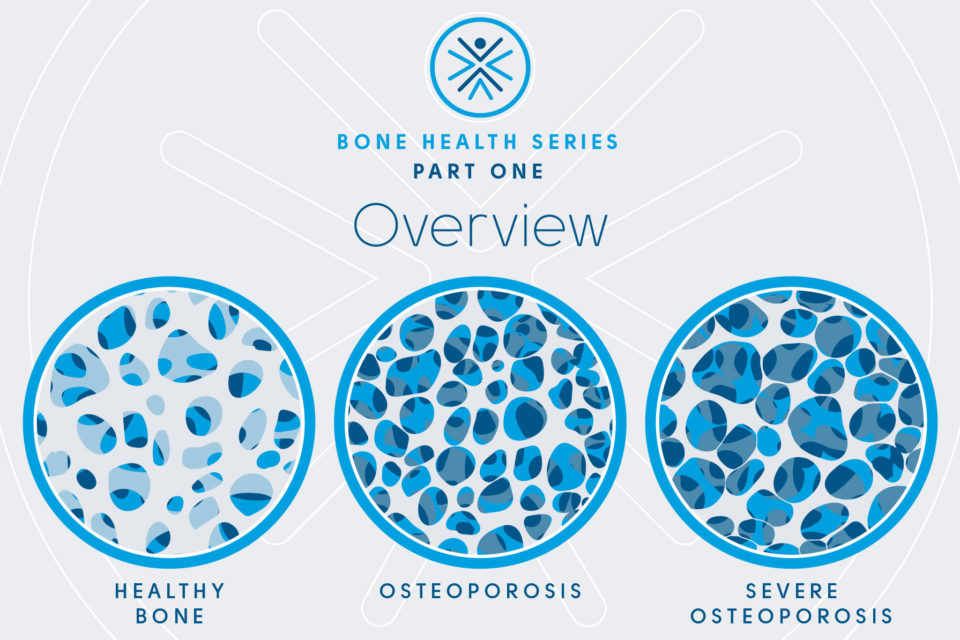Bone Health Series, Part One of Four: Overview
By: MJ Fegan, PT, DPT, GCS —
According to the National Osteoporosis Foundation millions of Americans – 54 million to be exact – have low bone density or osteoporosis. Osteoporosis can strike at any age and affects men and women.

Osteoporosis is a disease in which the density and quality of bone are reduced. Bones become thin and porous, decreasing bone strength and leading to an increased risk of breaking a bone.
Osteoporosis Canada states over 80% of all fractures in people 50+ are caused by osteoporosis. In fact, about one in three women and up to one in five men over the age of 50 will break a bone due to osteoporosis. Broken bones, a loss of height or changes in your posture like stooping over or having a forward head, may be signs of osteoporosis.
There are several risk factors for osteoporosis that we can’t change. They include age, female gender, ethnicity, and low sex hormones including estrogen and testosterone. Certain medical conditions and medications can increase bone loss as well. For example, Celiac Disease, Inflammatory Bowel Disease, Kidney Disease, and Thyroid disease can compromise bone health. Medications such as, Glucocorticoids (cortisone and prednisone), antiseizure medications (Dilantin, Phenobarbital), Aromatase inhibitors (used for breast cancer), Proton pump inhibitors (Prilosec and Prevacid) and Coumadin can also cause bone loss. If you are aware of these risk factors, you can help reduce bone loss with a little extra vigilance.
There are also several modifiable risk factors that we can change and eliminate. These include, alcohol intake, smoking, low body mass index, poor nutrition, Vitamin D deficiency, eating disorders, insufficient exercise and low dietary calcium intake.
If you have any of these risk factors, the following strategies are essential to help reduce possible bone loss:
- Eat healthy with adequate calcium intake.
- Exercise regularly and include weight bearing exercise.
- Avoid tobacco use.
- Keep alcohol consumption to no more than one drink per day for women and two drinks per day for men.
- Ensure Vitamin D and Calcium intake is adequate The Recommended Daily Allowance of Vitamin D is 600 IU for ages 19-70 and 800 IU for ages 70+. The Recommended Daily Allowance of Calcium is 1000mg for ages 19-70, 1200mg for females age 50-70, and 1200mg for men and women age 70+. Your physician may increase this supplementation dosage depending on your risk level.
- Maintain a normal body mass index for your height and age.


